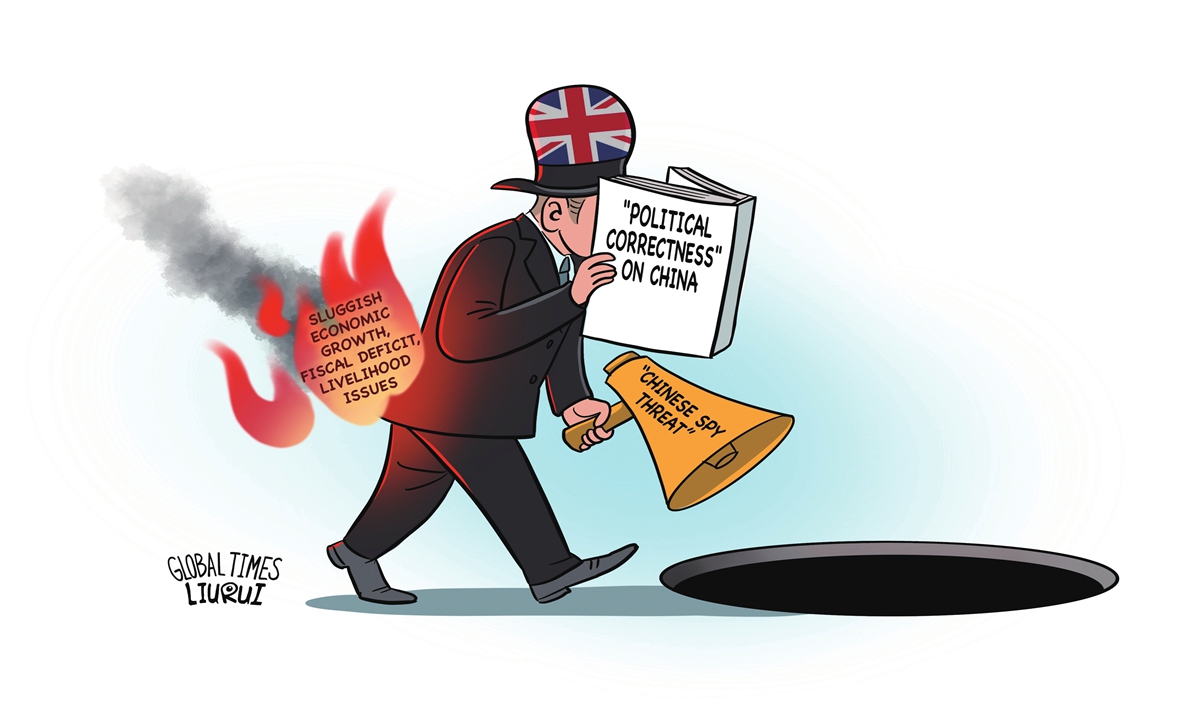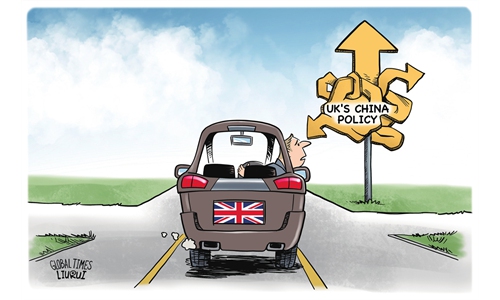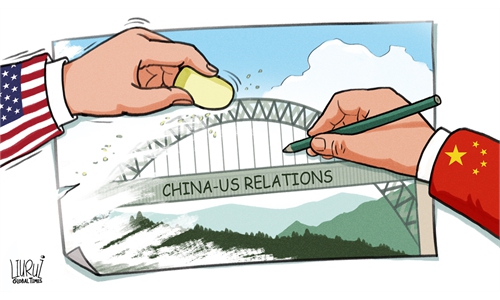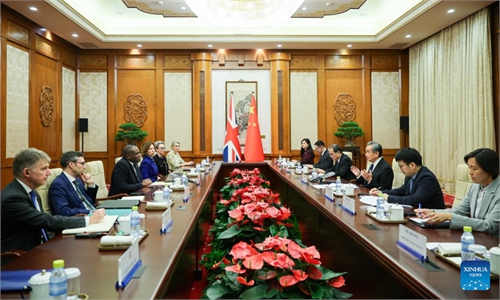
Illustration: Liu Rui/GT
Recently, some British anti-China lawmakers have started to hype the "Chinese spy threat" rhetoric again, using a Chinese businessman who has spent nearly 20 years in the UK as a "target," claiming that he is a "Chinese spy" and has close ties with British dignitaries David Cameron, Theresa May and Prince Andrew. In this regard, a spokesperson of the Chinese Embassy in the UK said on Tuesday that the purpose of such anti-Chinese propaganda is to "smear China, target against the Chinese community in the UK and undermine normal personnel exchanges between China and the UK."
The Chinese businessman, who is now banned from the UK due to the so-called spy allegation, said: "When relations are good, and Chinese investment is sought, I am welcome in the UK. When relations sour, an anti-China stance is taken, and I am excluded." These words precisely reflect the true picture of the development of China-UK relations at the moment. The UK's diplomatic policy toward China increasingly exhibits a contradictory nature, being both pragmatic and anxious, while simultaneously seeking cooperation and creating disturbances.
When the Labour government came to power, it faced the predicament left by the Conservative Party's administration: sluggish economic growth, a serious fiscal deficit, and prominent livelihood issues. Against this backdrop, the Labour government has attempted to improve China-UK relations, expand bilateral economic and trade cooperation, and deepen interaction with China in a wide range of areas, with the expectation of benefiting from such moves.
However, just when the China-UK relationship was showing signs of improvement, anti-Chinese forces in the UK began to advocate the "Chinese spy threat" rhetoric, while the security services in the country emphasized that China is the UK's "biggest long-term threat." Under the influence of those voices, the Labour government's policy toward China shows an ambivalent mentality.
The Labour government has said that its relationship with China will be based on cooperation, competition and challenge. In a nutshell, this is the "3C" strategy pursued by the UK and some other European countries toward China. Such a complex and contradictory foreign policy orientation is expected to become an important yardstick for the current Labour government to assess the direction of China-UK relations.
Every once in a while, there is hype about the threat of "Chinese spies." Some British anti-China lawmakers have spared no effort to fabricate those "Chinese spy" cases with the aim of forcing the Labour government to continue to curb China, instead of improving relations and expanding exchanges. Whether driven by their anti-China sentiments or by instructions from the US, these individuals will continue to act as the vanguard of anti-China forces for some time to come. From a broader perspective, the Western anti-China forces hype up various "China threat" narratives with the aim of creating misconceptions and hostility toward China at both the national and public levels, thereby hijacking the government's policy toward China. In addition, these forces also act based on the "political correctness" principle, meaning that they look at issues through the lens of Western ideological bias. This kind of rigid cognitive position and value orientation is becoming a stumbling block for Western countries in improving their relations with China.
In this sense, the Labour government should learn from the past and it should not blindly follow "political correctness." Instead of engaging in political slander and political trials, it should adhere to the judicial procedures in those "Chinese spy threat" cases. Otherwise, it will risk seriously harming China-UK relations. A stable and healthy relationship between the two countries will help the British economy recover and benefit both peoples.
The author is a senior research fellow at the Institute of European Studies at the Chinese Academy of Social Sciences. opinion@globaltimes.com.cn



